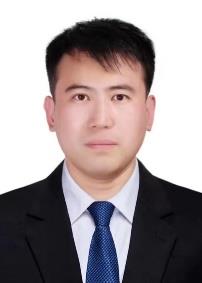special session I
Title of Session: Safe Planning and Control for Autonomous Driving Using Artificial Intelligence Technology
Submission Guideline:
Please submit your manuscript via Online Submission System, please choose "Special Session 1".
Biosketches and Photographs of Organizers:
 |
Dr. Jinhao Liang is currently a Research Fellow with Department of Civil and Environmental Engineering, National University of Singapore, Singapore. His research interests have focused on the vehicle dynamics and control, connected and autonomous vehicles, electric vehicles, vehicle-road cooperative control, etc. Moreover, Dr. Liang has published more than 50 papers in Journals and proceedings of international conferences. 10+ patents on Vehicle System dynamics and control. He won the Leading Prize for Autonomous Emergency Braking (AEB) assistance system at the 1st World Intelligent Driving Challenge. He serves as the editor board member of Journal of Advanced Transportation and PLOS ONE. Moreover, he has served as a guest editor for special issues in Computers and Electrical Engineering, Advances in Mechanical Engineering, and Machines. He is also a member of the international program committee for the 2024 International Conference on Automation and Intelligent Technology. He is a recipient of the Best Paper Award at 2024 International Conference on Frontiers of Electronic, Electrical and Computer Science, Excellent Proceedings of the 2017 China Intelligent Vehicle Contest (CIVC) Academic Conference, and Best Presentation Award of the 22nd IEEE International Conference on Industrial Informatics. He has also delivered invited speeches at international conferences and universities around the world. |
|
 |
|
|
 |
Dr. Yanbo Lu is currently a postdoctoral researcher at Intelligent and Connected Vehicles Lab, School of Vehicle and Mobility, Tsinghua University. His research interests include vehicle dynamics and control, fault-tolerant control and vehicle-cloud collaborative control. Moreover, Dr. Yanbo Lu has published more than 20 papers in Journals and proceedings of international conferences and 10 patents on Vehicle System dynamics and control. He has been honored the Shuimu Tsinghua Scholarship. |
|
 |
|
|
 |
|
Details of Session:
Autonomous driving represents a revolutionary shift, promising safer roads, and enhanced mobility in transportation. Consider, for instance, an autonomous vehicle navigating through urban traffic while avoiding other agents such as human-driven vehicles, and pedestrians. These scenarios pose critical safety challenges due to the unpredictability of these agents' intentions and behaviors, necessitating the estimation and integration of their a-priori unknown trajectories into the planning algorithm. Conventional approaches involve using historical trajectories to train a deep network, which is then incorporated into the path-planning process. Advancements in deep learning networks, statistical methods for quantifying uncertain prediction results, and engineering applications for the safe path-planning and control of autonomous driving are equally welcomed in this Special Session.
The session invites original papers of innovative ideas and concepts, new discoveries and improvements, and novel applications relevant to the following selected topics of "Safe Planning and Control for Autonomous Driving Using Artificial Intelligence Technology".
* Deep learning for trajectory prediction
* Quantified representation for uncertain prediction results
* Recognition and classification of human driver behaviors
* Safe and robust control of autonomous driving
* Cooperative control between autonomous vehicles and human-driven vehicles
* Machine learning methods for autonomous path-planning
* Modeling and advanced simulation of autonomous driving
* Engineering examples and applications